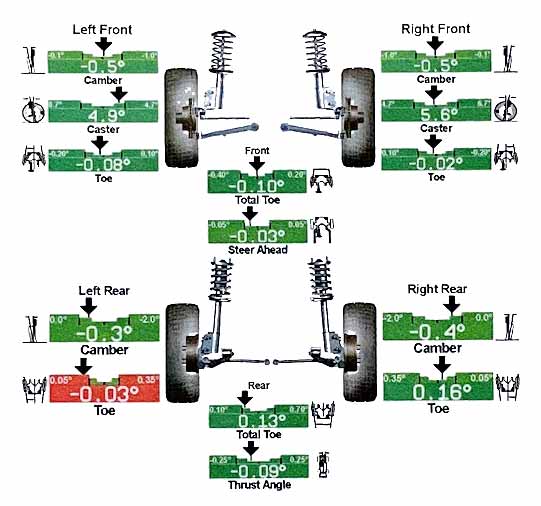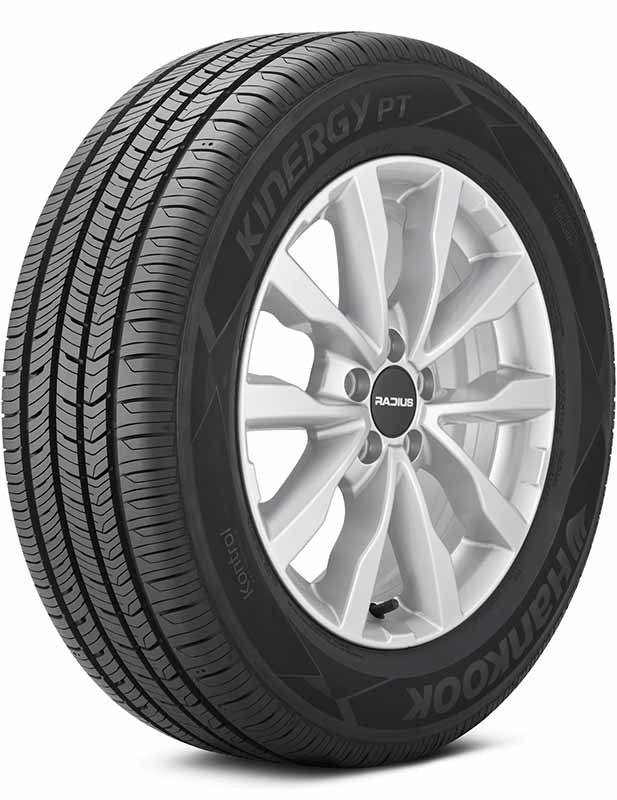Ever found yourself wondering if those high mileage tires with warranties boasting 70k, 80k, or even 90k miles are truly worth the investment? You’re not alone.
Are High Mileage Tires Worth It?
High mileage tires, promising up to 90,000 miles, are worth considering for long-term savings and durability, especially for drivers who clock a lot of miles.
However, they might involve trade-offs in areas like ride comfort and performance in extreme conditions.
In this article, we’ll explore the benefits and potential downsides of high mileage tires, discussing aspects like cost-effectiveness, real-life performance, and the impact of tread life warranties on your investment.
Hankook Kinergy PT
Customer Rating
Overall Rating
8.3 of 10
Wet Weather
8.7 of 10
Winter Weather
6.5 of 10
Tread Wear
9.0 of 10
Dry Weather
8.5 of 10
Ride Comfort
8.8 of 10
UTQG
Uniform Tire Quality Grade
UTQG Treadwear Rating: 800
UTQG Traction Rating: A
UTQG Temperature Rating: A
Mileage Warranty
6 Years / 90,000 Miles (T- & H-Speed Rated)
6 Years / 75,000 Miles (V-Speed Rated)
Find The Best Price
Key Performance Metrics
Hydroplaning: 8.8 of 10
Wet Grip: 8.7 of 10
Cornering: 8.6 of 10
Dry Grip: 8.5 of 10
Responsiveness: 8.6 of 10
Mild Snow Grip: 6.7 of 10
Heavy Snow Grip: 6.3 of 10
Ice Grip: 6.2 of 10
Comfort Level: 8.9 of 10
Road Noise: 8.7 of 10
Understanding High Mileage Tires
High mileage tires are designed to outlast the average tire life. They come with hefty mileage warranties, promising anywhere from 70,000 to 90,000 miles of road coverage.
Unlike standard tires, high mileage tires feature a harder rubber compound and a tread pattern fine-tuned for extended wear. This unique construction is central to their ability to last longer on the road.
The Ins and Outs of Tire Mileage Warranties
- More Than Just Numbers: A tire mileage warranty is essentially a promise from the manufacturer that the tires will last for a specified number of miles. However, it’s crucial to remember that these warranties typically have a time limit, often around 5 to 6 years. So, even if the tires haven’t hit their mileage cap, the warranty might expire. For a deeper understanding, our comprehensive guide on tire mileage warranties offers more insights.
- Realistic Expectations: It’s one thing to claim high mileage, but it’s another to deliver. We often see questions like “How many miles should a good tire get?” In reality, standard tires usually last between 40,000 to 60,000 miles, while high mileage tires aim to surpass these numbers.
The Value Proposition of High Mileage Tires
High mileage tires come with the promise of extended life, but what does this mean for you as a driver?
Let’s explore the value they bring to the table.
Cost-Effectiveness: A Closer Look
- Long-Term Savings: Initially, high mileage tires might seem like a bigger investment compared to standard tires. But the real value unfolds over time. With these tires, you’re potentially reducing the frequency of tire replacements.
- Quality Over Quantity: The age-old debate of cost versus quality comes into play. Investing in tires that promise 70,000 miles or more could save you money in the long run, especially if you rack up a lot of miles on the road.
Longevity and Performance
- Going the Distance: It’s not just about lasting longer; it’s about maintaining optimal performance throughout the tire’s life. High mileage tires are designed to wear down more evenly, which means better performance for a longer period.
- Case Study Insights: To give you a real-world perspective, consider someone wondering why their tires only lasted 35,000 miles. In many such cases, the tires might have been lower mileage ones, or the vehicle might not have been properly maintained. High mileage tires, combined with good maintenance, can significantly extend tire life.

The Real-Life Performance of High Mileage Tires
High mileage tires promise longevity, but let’s unpack how they actually hold up in everyday driving situations.
Factors Affecting Tire Life
- It’s Not Just the Tires: The lifespan of your tires is influenced by more than just their build. Driving habits, regular maintenance, and road conditions play a significant role. For example, aggressive driving or neglecting tire maintenance can cut down the life of even the best tires.
- Maintenance Matters: Consistent tire maintenance is crucial. Regular checks and alignments can extend tire life. Our guide on when and why to get tire alignments and balances provides practical advice on keeping your tires in top shape.
Addressing Tire Longevity Concerns
- Why Some Tires Fall Short: Ever wonder, why your tires only lasted 35,000 miles? Often, this shortened lifespan can be attributed to factors like improper tire pressure, misalignment, or irregular rotation. This isn’t just a tire issue; it’s a maintenance one.
- High Mileage Tires in Action: These tires are built to withstand more wear and tear. However, without proper care, even they can fall short of their mileage promise. The key is not just choosing the right tire but also taking care of it.
Real-World Performance vs. Promised Mileage
- Expectations vs. Reality: High mileage tires are tested under controlled conditions to ensure they meet the promised mileage. However, real-world conditions like rough roads or extreme weather can affect their performance and longevity.
- Balancing Performance and Longevity: While these tires are designed for extended use, it’s essential to balance their longevity with other performance aspects like grip and handling. Longer-lasting doesn’t always mean better performance in every category.

The Limitations and Downsides of High Mileage Tires
High mileage tires are engineered for durability, but this can sometimes mean compromises in other areas. For example, the harder compound used for extended wear might result in a less smooth ride compared to softer, standard tires.
These tires may not always perform optimally in extreme weather conditions. The tread patterns and rubber compounds designed for longevity might not offer the same level of grip and handling as specialized tires in snowy or very wet conditions.
Understanding Tread Life Warranties
- The Time Cap on Warranties: It’s crucial to remember that tread life warranties are often capped at a certain duration, usually 5 to 6 years. This means if you don’t reach the mileage limit within this time frame, the warranty won’t cover your tires. For an in-depth look at how these warranties work, check out our detailed explanation on tread life warranties and their limitations.
- Calculating the Real Value: The big question is whether you’ll actually hit the high mileage mark within the warranty period. Our tire mileage warranty calculator can help you estimate if a high mileage tire is economically sensible for your driving habits.
Balancing Mileage with Other Aspects
- Performance vs. Longevity: It’s a balancing act between how long the tires last and how well they perform. While high mileage tires promise extended life, they might not always match the performance levels of their lower-mileage counterparts in terms of handling and ride comfort.
- Making the Right Choice: When choosing tires, it’s essential to consider not just the mileage but also how they align with your specific driving needs and conditions. If you prioritize a smoother ride or better handling in varied weather, high mileage tires might not always be the best option.
Tire Mileage Warranty Calculator
Making an Informed Decision: Choosing the Right Tires
With various options available, including high mileage tires, it’s essential to consider several factors to ensure you make a choice that best suits your needs.
Here’s a guide to help you navigate this decision.
Consider Your Vehicle and Driving Conditions
- Vehicle Type Matters: The type of vehicle you drive influences your tire choice. A compact car may have different tire needs compared to a large SUV or a truck.
- Assess Your Driving Environment: Consider the typical driving conditions you encounter. If you’re frequently driving in wet or snowy conditions, the performance characteristics of the tires become just as important as their longevity.
Evaluating Your Driving Habits
- Mileage and Usage: If you’re someone who drives a lot, especially long distances, high mileage tires could be a smart choice. Their extended lifespan can offer better value over time.
- Driving Style: Are you a cautious driver who maintains steady speeds, or do you have a more aggressive driving style? Your driving habits can significantly impact tire wear and performance.
The Importance of Regular Tire Maintenance
- Maximizing Tire Life: No matter the type of tire you choose, regular maintenance is key to maximizing its lifespan. This includes maintaining proper tire pressure, regular rotations, and alignments. Check out our guide on maintaining tire alignment and balance for more tips.
- Safety First: Regularly inspecting your tires for wear and damage is critical for safety. Even the best tires can fail if they’re not properly cared for.
High Mileage Tires: Yes or No?
- The Final Verdict: High mileage tires are an excellent choice for drivers who clock a lot of miles and want to minimize the frequency of tire replacements. However, if your driving conditions demand specialized performance, or if you don’t drive enough to benefit from the extended mileage warranty, other tire options might be more suitable.
Resources
Below are some links you may find helpful when learning about tires:
- Tire buying guide – Consumer Reports
- Understanding tire specifications and features – Michelin
- Tire maintenance and safety tips – National Highway Traffic Safety Administration
Final Thoughts
Choosing the right tires for your vehicle is a critical decision that can impact your driving experience and safety. High mileage tires offer an appealing promise of longevity and reduced replacement frequency.
However, it’s important to consider their potential limitations, such as performance in extreme weather conditions and the cost-benefit balance based on your driving habits. Regular maintenance, alignment, and tire care are also key to maximizing tire life, regardless of the type you choose.
Ultimately, the best tire for you depends on a combination of your vehicle type, driving conditions, habits, and personal preferences.
Good luck and happy motoring.







